Trends are about what fuels innovation and propels industries forward, not just about change.
Today's Travel apps aren't just for booking; they're smart, interactive companions that enhance every journey step.
No longer do travel apps only show flights and hotels.
Now, they offer customized plans, up-to-the-second alerts, personalized ideas driven by AI, and engaging experiences that make every trip easy and fun.
The latest trends in travel technology show us a future where apps anticipate our needs, direct us with augmented reality, and make travel payments easier than ever.
Understanding these key trends in travel apps is essential, whether launching a fresh travel startup or updating your existing one.
In the thriving travel app market, they are influencing how people see the world and how companies do well.
Prepare yourself, because the future of travel is here. This blog post delves into the top trends in travel app development, changing how users plan, book, and enjoy their trips.
What is a Travel App?
Think of a travel app as your ideal trip buddy, always ready in your pocket to make planning and visiting a pleasure.
Whether booking flights, getting hotel deals, or planning your daily adventures, these apps connect everything with just a few taps.
Need to find a local hotspot or figure out how to get from the airport to your hotel? Done and done.
With smartphones becoming nearly an extension of ourselves and fast internet everywhere, travel apps have changed from nice-to-have to must-have needs.
They keep you updated with real-time trip updates, weather changes, and even personalized advice based on your likes.
No more looking through messy papers or juggling multiple websites; your entire trip is neatly planned in one sleek app.
It's like having a personal travel assistant, tour guide, and booking agent rolled into one.
Ready to turn your travel dreams into smooth, amazing experiences? Let's explore how these apps change the game for wanderers like you!
Market Statistics of Travel Apps
The travel app market is on a sky-high growth trajectory, driven by the rising demand for seamless, tech-powered travel experiences.
Here’s a snapshot of how fast this space is expanding:
-
- The online travel market (flights, hotels, car rentals, etc.) was valued at $566.7 billion in 2024 and is projected to soar to approximately $1.38 trillion by 2033, growing at a CAGR of 9.85% from 2025 to 2033.
- The mobile travel app market alone is forecasted to reach $93.3 billion by 2034, expanding at a CAGR of 11.4% between 2025 and 2034.
- Travel app revenues reached $629 billion in 2024, driven by mobile engagement and advanced features.
- Global travel app downloads reached 4.2 billion in 2024, rising 3 percent from the previous year. Users spent over 20 billion hours in travel apps, marking a year-over-year increase of 7.3 percent.
These statistics show that investing in smart, scalable travel apps is no longer optional. It has become essential for growth.
Let's now explore the top travel app development trends in the next section.
Top Travel App Development Trends
The travel app market is booming as users demand faster, smarter, and more immersive experiences from planning to landing.
To stay competitive, businesses must embrace the latest technology trends in travel app development, offering real-time convenience and personalized journeys.
AI-powered personalization is a major game-changer, suggesting smart plans and predictive bookings tailored to user preferences.
Voice search and virtual travel agents also provide hands-free, conversational booking experiences.
Trending tech like AR and VR lets users explore destinations virtually before booking.
Secure mobile payments and eWallet integrations reshape how travelers pay, making transactions smooth and safe.
While tapping into these innovations, it's essential to understand the cost of developing a travel app, ensuring the right investment in features that wow users and build future-ready platforms.
1. AI-Powered Personalization for Smarter Itineraries
Let's be real, travelers today don't want cookie-cutter trips.
They want adventures that feel personal, smooth, and suited to their vibe. That's where AI-powered travel app trends step in and steal the attention.
With advanced AI development services, one can build travel apps that learn from user tastes, past travel behavior, real-time data, and even weather or local events to build fully customized plans.
Here’s how AI is changing the travel experience:
-
- Suggesting nearby activities based on your mood or location.
- Adjusting plans due to flight delays or changing weather.
- Recommending the best times to visit spots and avoid crowds.
Machine learning plays a key role here. The more users connect, the better the app becomes, improving its suggestions and enhancing personalization.
This smart, flexible experience keeps users involved, builds brand trust, and turns first-time users into lifetime travelers.
As AI travel app development trends change, one thing's clear: your app isn't just planning a trip anymore; it's becoming a personal travel genie in your pocket.
2. Augmented Reality (AR) for Interactive Exploration
Augmented Reality (AR) is changing the way travelers interact with the world around them.
By projecting digital material onto real-world settings, AR allows users to discover destinations in a far more engaging, immersive, and educational way.
With the help of advanced AR development services, travel apps can now provide features that go well beyond traditional guidance or guidebooks.
Imagine pointing your phone at a landmark and quickly getting historical facts, cultural insights, or an animated visualization of its past. That’s the power of AR in motion.
Here’s how AR is changing the travel experience:
-
- Interactive maps that respond to your surroundings.
- On-the-spot translation of signs or tables.
- Restaurant previews through window scans.
- Virtual hotel room tours before booking AR prize hunts or guided city walks for tourists.
These experiences aren’t just fun; they’re educational, handy, and incredibly user-centric.
As travelers increasingly seek out better, tech-enhanced trips, AR in travel app development stands out as one of the most exciting new trends reshaping the industry.
By adding AR in Travel Apps, travel platforms can boost user interaction, offer real-time value, and create memorable travel moments. It’s more than just a travel app development trend-it’s the future of travel.
3. Virtual Reality (VR) for Immersive Travel Previews
Virtual Reality (VR) is quickly becoming one of the most impactful technological trends in travel app development, allowing users to explore the world without ever leaving their homes, at least not yet.
Thanks to advanced AR/ VR development services, travel apps can offer immersive previews of destinations, hotels, and attractions, helping users confidently make more informed decisions.
Instead of relying solely on photos or text reviews, travelers can now step inside a hotel room, stroll through resort grounds, or preview a scenic hiking trail, all through a VR headset or mobile-enabled experience.
Here's how VR is redefining travel engagement:
-
- 360° hotel and resort walkthroughs.
- Virtual tours of museums, landmarks, or adventure experiences.
- Try-before-you-book previews for vacation packages.
- Immersive city tours with narrated guides.
- Cruise ship walkthroughs and onboard previews.
These features enhance the booking experience and boost trust and transparency, making users feel more secure in their choices.
VR stands out among next-generation travel app trends as expectations rise for more interactive and intuitive planning tools.
By integrating VR capabilities, travel apps are elevating inspiration, reducing uncertainty, and setting a new standard for people planning their trips.
It's not just about showing; it's about experiencing the journey before it begins.
4. Offline Mode for Remote Travel Access
Even in a hyper-connected world, not every location offers secure internet service.
From remote villages to curvy mountain trails and underground metro stops, connection can drop, and that's where offline mode becomes important in travel app development.
Today's travelers expect smooth functionality, even when the signal bars disappear.
With offline mode, users can still access important information like maps, schedules, hotel bookings, trip details, and local guides without needing Wi-Fi or mobile data.
Here’s what offline functionality adds to the user experience:
-
- Access to saved maps for travel in no-network zones.
- Itinerary watching and changing, even mid-journey.
- Digital passes and booking receipts are on hand at all times.
- Emergency contact details and area tips saved offline.
- Downloadable language guides or transportation plans for on-the-go use.
Offline mode isn't just a comfort; it's necessary for modern travel apps trying to offer dependable service in every situation.
As travel app trends for businesses lean toward ease and dependability, offline functionality plays a major role in building trust and ensuring user happiness.
Whether your users are hiking remote trails, exploring old ruins, or trying to avoid mobile charges abroad, offline mode guarantees the experience stays smooth, unbroken, and stress-free.
Adding this function means your app can go wherever your users do; no connection is needed.
5. Voice Search & Virtual Travel Assistants
Voice technology rapidly changes travel apps, making them more natural, faster, and hands-free.
In today's fast-paced world, travelers often manage bags, navigate busy airports, or visit new places.
Typing on tiny screens or exploring complicated choices can be annoying and time-consuming.
This is where voice search and virtual travel helpers step in, changing how users interact with their apps.
With speech prompts, travelers can quickly ask for nearby restaurants, check flight schedules, book tickets, or get suggestions.
Here’s what voice technology brings to the table:
-
- Effortless, hands-free access to travel information.
- Faster, more natural interactions with the app.
- Enhanced usability for people with disabilities.
- Support for multiple languages and accents, thanks to AI-driven voice recognition.
- Personalized suggestions based on user preferences and context.
As one of the most important technological trends in travel apps, voice search has become a key feature of travel app, meeting perfectly with user standards for smooth, efficient, and friendly experiences.
Businesses that combine strong voice helpers provide travelers with better tools, increasing engagement and happiness.
Incorporating voice technology is no longer a choice; it is a must-have travel app development trend for platforms that want to stay competitive, relevant, and user-friendly in an increasingly mobile and busy world.
6. Advanced Data Security & Privacy Protection
With cyber threats changing quickly, mobile app security has become important in travel app development.
Travel apps handle highly sensitive data such as IDs, payment information, and personal preferences, making them attractive targets for hackers.
To build trust and protect users, adopting strong security measures is non-negotiable.
Robust encryption safeguards user data in travel and at rest, ensuring information remains private and tamper-proof.
Compliance with regulations like GDPR is important, requiring apps to handle personal data openly and carefully.
Failing to meet these standards can lead to severe penalties and loss of customer trust.
Secure payment gateways further protect travelers’ financial transactions, applying tokenization and trusted third-party operators to reduce scam risks.
Here’s what security features include:
-
- End-to-end security for all sensitive information.
- Adherence to global data protection rules like GDPR.
- Secure, smooth payment handling.
- Transparent privacy rules that support user trust.
As travel apps continue to change, valuing security and privacy protection is vital for businesses hoping to earn loyalty, stay competitive, and provide users with peace of mind on every trip.
7. Minimalist UI/UX with Travel-Centric Design Trends
In the highly competitive travel app market, providing a one-stop shop for booking flights, hotels, car rentals, and local activities isn't just a bonus; it's a requirement.
Travelers crave the ease of controlling their entire trip through a single, smooth app without moving between platforms.
The key to winning their hearts is a fast, simple booking experience.
Travel apps with efficient designs allow users to find, compare, and make bookings in just a few taps.
This smooth journey drives happiness, loyalty, and positive suggestions.
But the perks go further. When booking choices are fully merged, apps can offer personalized package deals and combined savings.
To build such high-performing apps, businesses often hire dedicated developers who can make personalized, flexible solutions that raise customer value and boost income.
Here’s what key benefits of minimalist UI/UX:
-
- Clean, clutter-free interfaces that enhance user focus and reduce cognitive load.
- Intuitive navigation tailored for on-the-go travelers, enabling faster interactions.
- Visually appealing layouts that highlight essential travel info without distractions.
- Consistent, responsive design across devices for a smooth, seamless journey.
Apps that succeed in offering complete in-app booking become important travel partners.
Starting from a detailed wireframe and prototype, they provide users with everything needed in one reliable, efficient tool.
This trend isn’t just a passing phase but a core assumption separating top travel apps from the rest.
8. In-App Bookings for Flights, Hotels, & Activities
In the competitive world of travel apps, having a one-stop shop experience for booking flights, hotels, car rentals, and local events is now important.
Travelers want to easily handle every part of their trip within a single app, without switching between multiple platforms or websites.
The easier and faster the booking process, the better.
Streamlined, simple interfaces that allow users to find, compare, and approve bookings in just a few taps improve user happiness and drive higher conversion rates.
When booking flows are smooth, users are likely to return for future trips and suggest the app to others.
Beyond ease, combining all booking choices in one place allows apps to offer personalized package deals and combined savings, increasing income opportunities while improving user value.
Here’s what are the benefits of in-app booking include:
-
- Quick and easy flight, hotel, and activity bookings.
- Integrated payment gateways for secure, hassle-free deals.
- Access to exclusive deals and tailored packages.
- Reduced hassle, leading to better user engagement and loyalty.
Travel apps that master in-app booking become essential travel companions, providing everything users need in one reliable, efficient platform.
This trend isn't just popular, it's a basic assumption that separates business stars from the rest.
9. AI Chatbots for 24/7 Customer Support
Modern travelers want fast support, without holding music or long FAQs, and quick and reliable help exactly when needed.
That's where AI chatbots step in, offering smooth, round-the-clock customer help that keeps users happy and involved.
With advanced AI chatbot development, travel apps can quickly answer common questions, help with bookings, and even handle situations without human involvement.
This smooth support experience reduces delays, settles issues quickly, and frees human workers to handle more complicated problems.
Travelers enjoy having a reliable virtual helper when needed, whether checking flight information late at night, changing hotel plans on the go, or looking for local suggestions.
AI chatbots offer personalized answers by learning from user interactions, making each conversation better and more helpful.
Here’s the benefits of adding AI chatbots in travel apps:
-
- Immediate answers to FAQs, booking help, and schedule changes.
- 24/7 access provides help any time of day or night.
- Reduced wait times and increased customer happiness.
- Personalized help based on user data and past contacts.
- Cost-effective growth of customer service operations.
By accepting AI chatbot technology, travel apps change customer help from a possible pain point into a standout feature.
This real-time, clever help improves user experience and builds trust and loyalty.
AI chatbots have become a must-have innovation in the competitive travel app market. They provide faster support, higher engagement, and a better trip for every tourist.
For businesses looking to create a travel app, staying ahead of these trends is crucial to remaining competitive in this evolving market.
Tips to Make Your Travel App Future-Proof
Building a travel app that stays current and competitive in the ever-evolving travel industry takes careful planning and smart development.
Here are key tips for future-proofing your travel app and ensuring it smoothly adapts to new trends and user standards.
1] Embrace Modular Development
Design your app with a flexible layout. This allows you to add or change features quickly without redoing the entire system.
This freedom helps you react to new market needs, combine cutting-edge technologies, and roll out improvements with minimal downtime.
2] Prioritize Security and Compliance
With growing cyber threats and strict data protection regulations like GDPR and CCPA, protecting user data is non-negotiable.
Your app should have strong encryption, secure payment gateways, and clear privacy policies from day one to build trust and avoid costly hacks.
3] Integrate AI and Machine Learning Early
AI-driven customization and smart automation are no longer options; they're expected.
Incorporate AI and machine learning to provide personalized schedules, real-time travel information, and clever customer support, keeping your app ahead of the competition.
4] Design for Both Online and Offline Usage
Travelers don’t always have stable internet access.
Ensure your app works easily offline by allowing users to access saved maps, schedules, and booking information so they stay aware and stress-free wherever they go.
5] Focus on User Feedback and Continuous Improvement
Keep your finger on the pulse by constantly getting and studying user comments.
Regular changes based on real user needs will keep your app interesting, simple, and linked with changing tourist standards.
By following these strategies, your travel app will be well-positioned to thrive now and in the future.
When you partner with a top mobile app development company in Denver, your app will offer every tourist a smooth, secure, and personalized experience.
Why Choose JPLoft for Travel App Development?
Look no further than JPLoft, a top travel app development company with a proven track record in providing new and reliable digital solutions.
With over 10 years of experience and more than 1100 great projects, we can bring your travel app idea to life.
Our skilled team specializes in building feature-rich, user-friendly apps that include AI-powered customization, real-time messages, secure payment integrations, and offline functionality, ensuring a smooth travel experience.
We also leverage cutting-edge technologies like AR/VR for immersive travel demos and AI chatbots for fast, 24/7 customer support.
Partnering with JPLoft means you get a dedicated, tech-savvy team focused on improving user engagement, boosting sales, and driving ROI.
Trust us to build a travel app that stands out in a competitive market and delights users every step of the way.
Wrapping Up
Travel app development is changing quickly, with exciting innovations reshaping how users plan and enjoy their trips.
To stay ahead, it's important to keep up with the latest trends and technologies, from AI-powered personalization to smooth in-app bookings and immersive AR experiences.
Choosing the right development partner can make all the difference in turning your vision into a successful, user-friendly app.
Ready to raise your travel app game and offer amazing experiences?
Let JPLoft be your trusted co-pilot on this journey, guiding you with experience, innovation, and a commitment to excellence every step.
Together, we’ll take your travel app to new heights.
FAQs
Implement end-to-end encryption, secure login/authentication methods, GDPR compliance, and tokenization to protect sensitive user data like payment info, travel history, and personal preferences.
Travel app development faces challenges like integrating real-time data (flights, hotels, local transport), ensuring seamless user experience, managing third-party APIs, personalizing content with AI, and maintaining security and scalability under high user loads.
AR-based virtual tours, AI-powered recommendations, voice search, eWallet integration, real-time language translation, and eco-conscious travel suggestions are redefining modern travel apps.
A seamless user experience boosts engagement, loyalty, and conversions by offering fast loading times, intuitive navigation, personalized recommendations, and features like trip planners, real-time tracking, and offline access.
AI helps deliver personalized trip plans, real-time suggestions, smart booking options, chatbot support, and dynamic pricing, making travel apps more predictive, interactive, and user-focused.





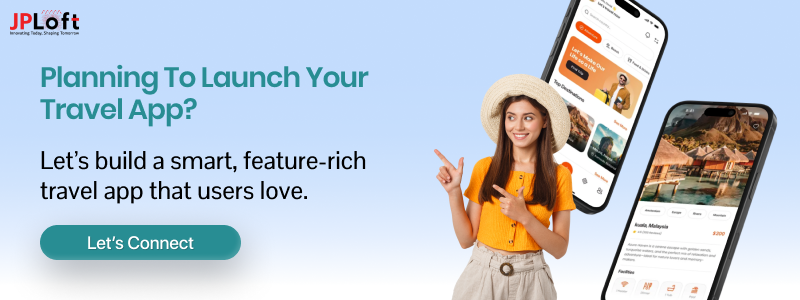
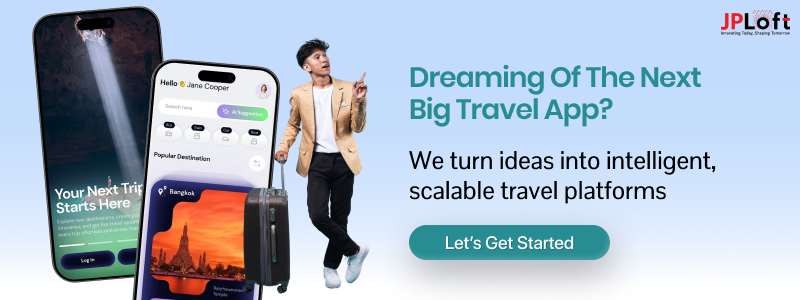
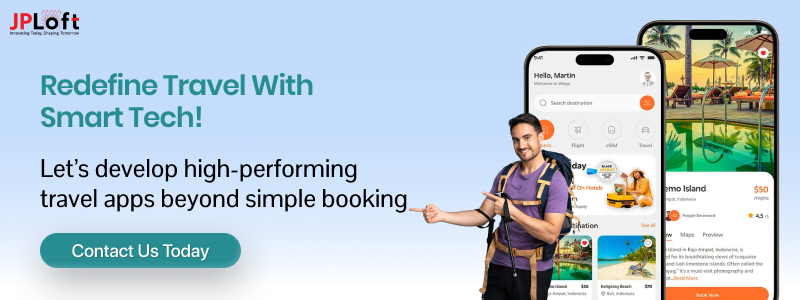

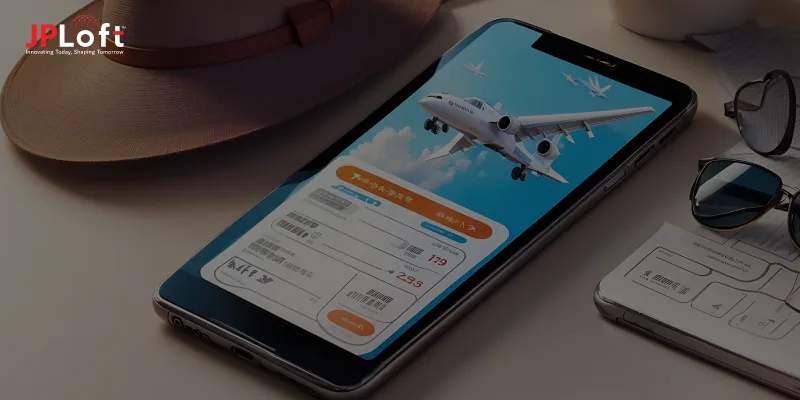
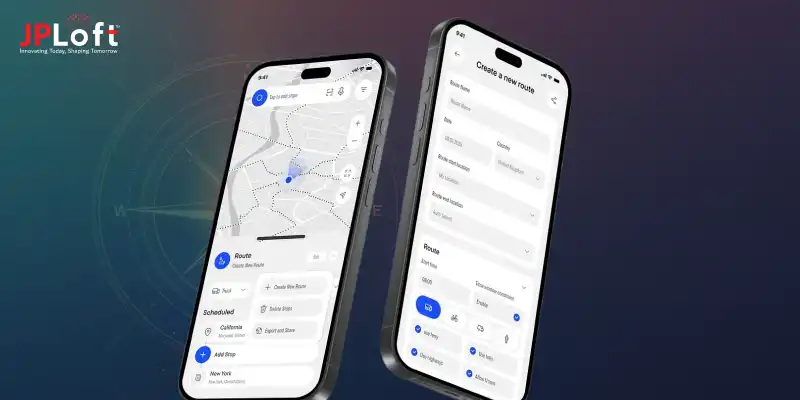
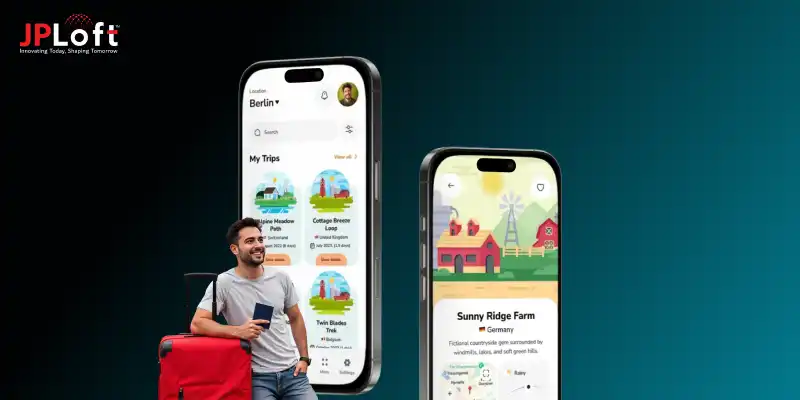


Share this blog